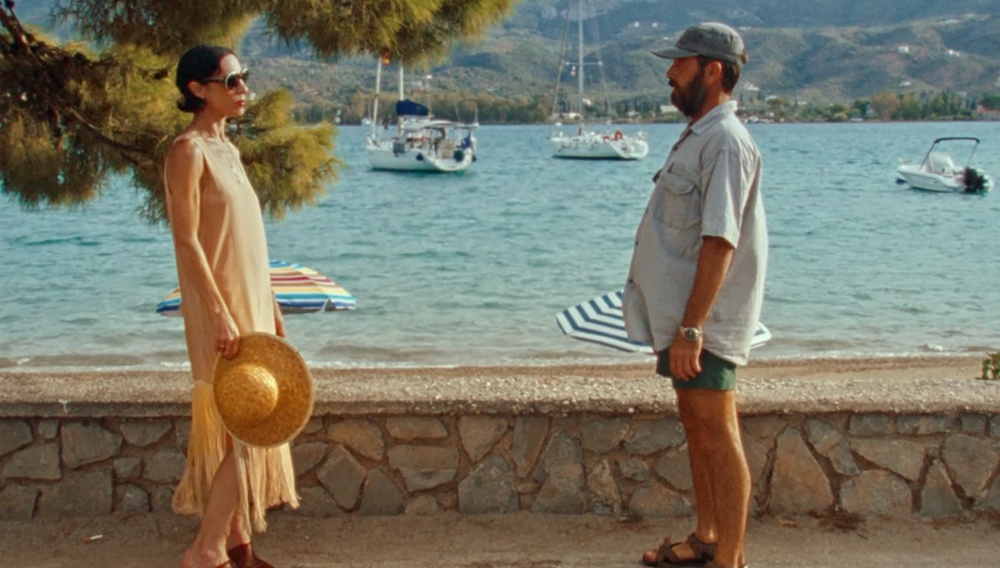Τhe Greek summer, with its warm sunsets, azure seas, and picturesque islands, holds a unique place in the cinematic lexicon. It has serves as a narrative canvas for many directors, Greek as well as international, from the lush colors of Hydra in 1957 Sophia Loren vehicle “Boy on a Dolphin” –the first Hollywood film shot in Greece to contemporary Greek kitchen-sink drama “Spirtokouto” set to the unforgiving Athens heat and the confinement of apartments. We take a look – and a virtual trip – though ten Greek films of the last decades and their varied portrayal of the Greek summer in the city and in the countryside, in all its idyllic and harsh glory.
Οι Απέναντι (A Foolish Love,1981) — Athens
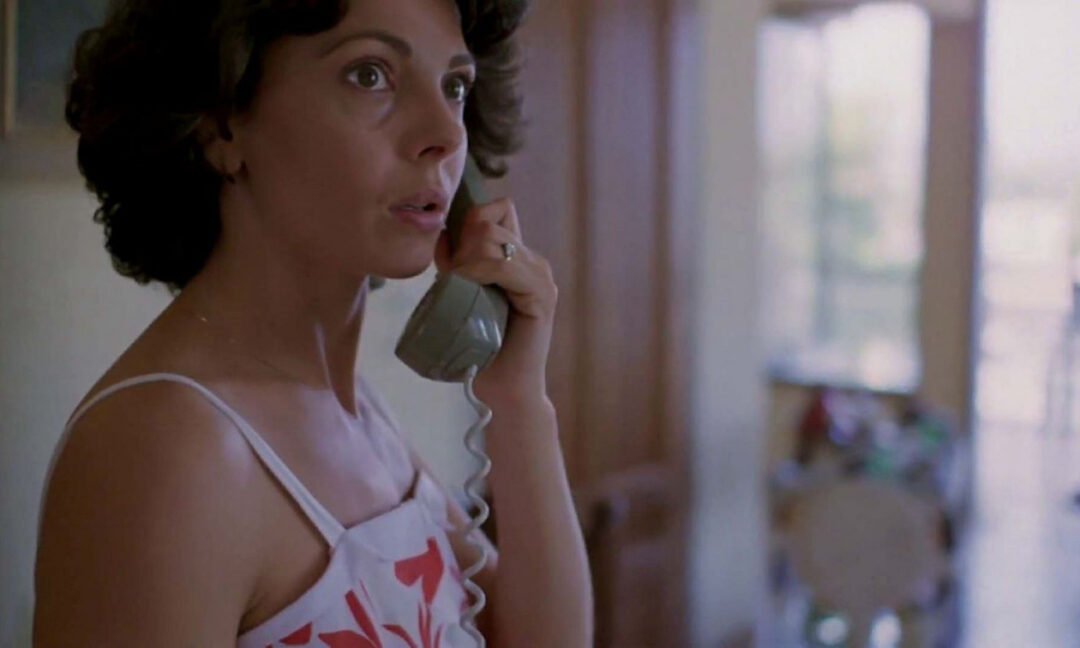
On a hot Athenian July, a reclusive Astronomy student spots a disillusioned woman with his telescope, and his dull existence takes on a new meaning. Director Giorgos Panousopoulos crafts a haunting and poetic urban fable that explores loneliness, desire, and the chasm between fantasy and connection. Aris Retsos delivers a compelling performance as Harís—pale, withdrawn, and emotionally detached—while Betty Livanou imbues Stella with a quietly potent sensuality and mystery.
Τhe film turns Athens into a character itself—its heat, its isolation, and its fragments of intimacy captured in glimmers between balconies and open windows. Critically, Οι Απέναντι was a commercial success for its time, attracting over 116,000 viewers and ranking 12th among 46 Greek films of the year.
Το δέντρο που πληγώναμε (The Tree we Hurt,1986) — Chios
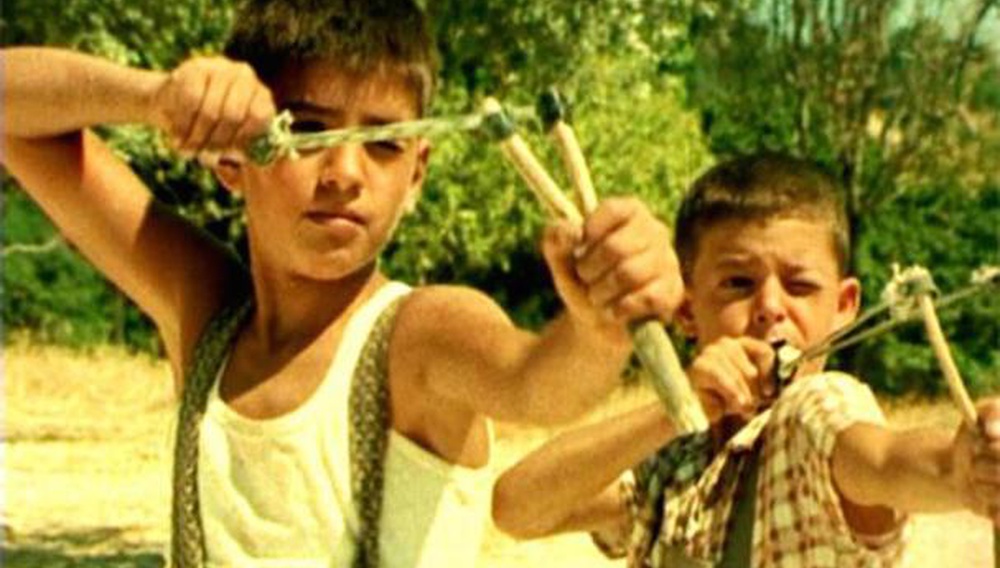
This film by Dimos Avdeliodis transports viewers to a summer in the 1960s on the island of Chios, specifically in its mastic villages, showing the story of young boys and very good friends who, due to an unfortunate incident, come into conflict just before school closes for the summer holidays. The film beautifully portrays childhood rebelliousness and τηε joy of adventure, the unavoidable loss of innocence, as well as the Greek countryside of 60s. It’s a deeply personal work that remains emotionally resonant to this day.
Ας περιμένουν οι γυναίκες (Let the women wait, 1998)— Thassos
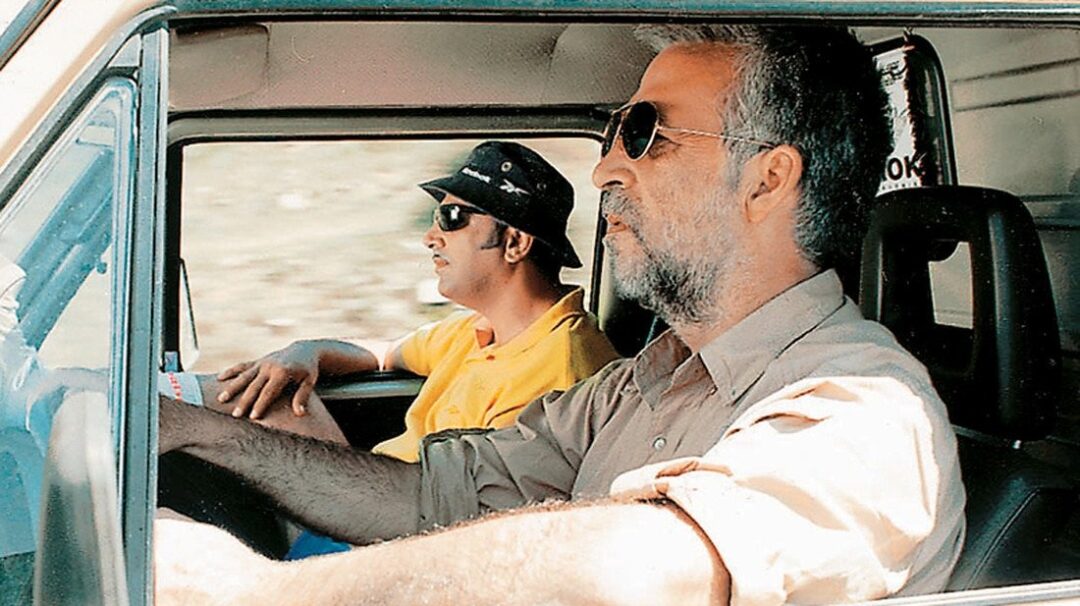
This film is considered the culmination of director Stavros Tsiolis‘ “women trilogy”. Set during an August road trip to the northern island of Thassos, the film is about three brothers-in-law that embark on a journey to find their wives, encountering various situations along the way. The film explores the limits of male friendship, skillfully blending humor with sociopolitical commentary to create a bittersweet snapshot of the Greek reality of the time. A testament to its enduring appeal the film’s lines have become legendary and are still popular, almost three decades after its release.
Φτηνά Τσιγάρα (Cheap Smokes, 2000) — Athens
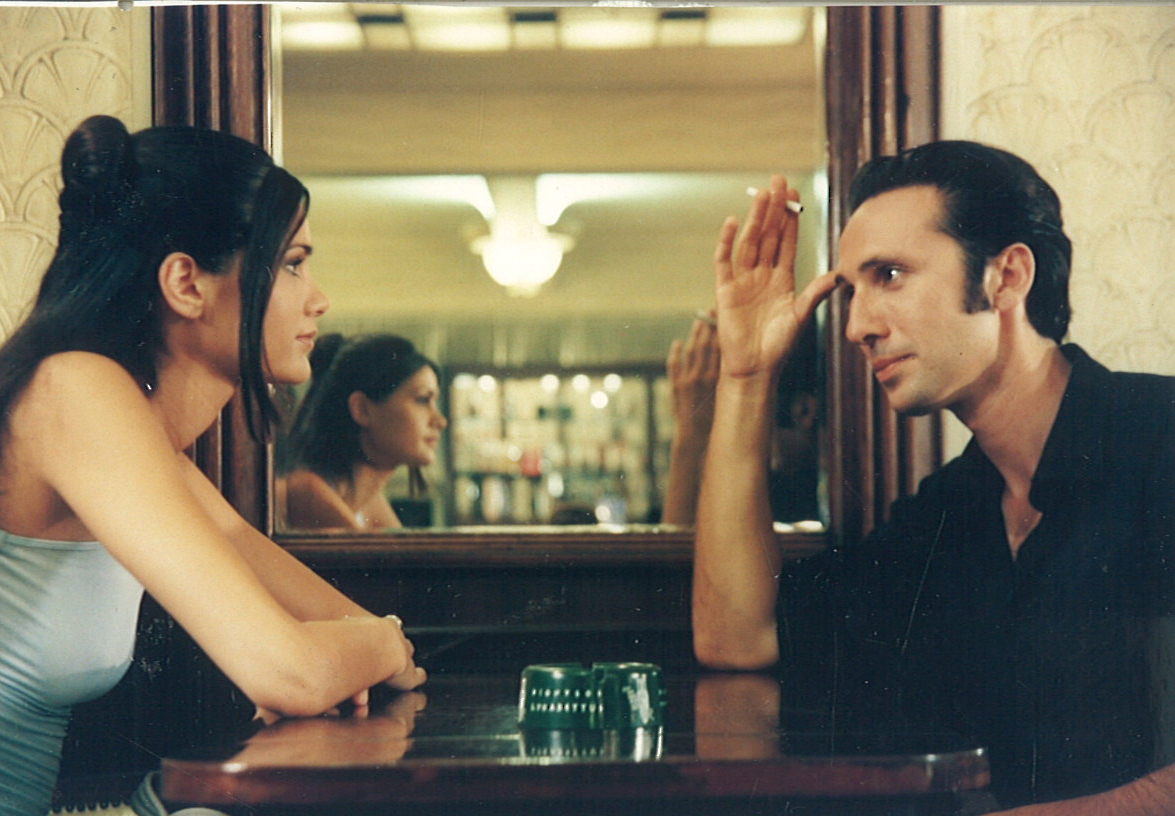
The empty streets of August in Athens provide the ideal setting for this romantic story, which was filmed in just 23 days in August 1999. Renos Haralambidis‘s personal film explores an Athenian summer where love triumphs even in loss, and daily life embraces adventure on bohemian sidewalks. Its urban romanticism and nocturnal, youthful aesthetic profoundly influenced modern Greek pop culture, earning it “all-time classic” status. The film is described as a jazz improvisation, featuring characters who fall in love, curse, philosophize, and find satisfaction in the smallest things, always while smoking cheap cigarettes. It was recently adapted into a successful musical at the Alternative Stage of the Greek National Opera.
Δεκαπενταύγουστος (One Day in August, 2001) — Athens, Panagia Soumela
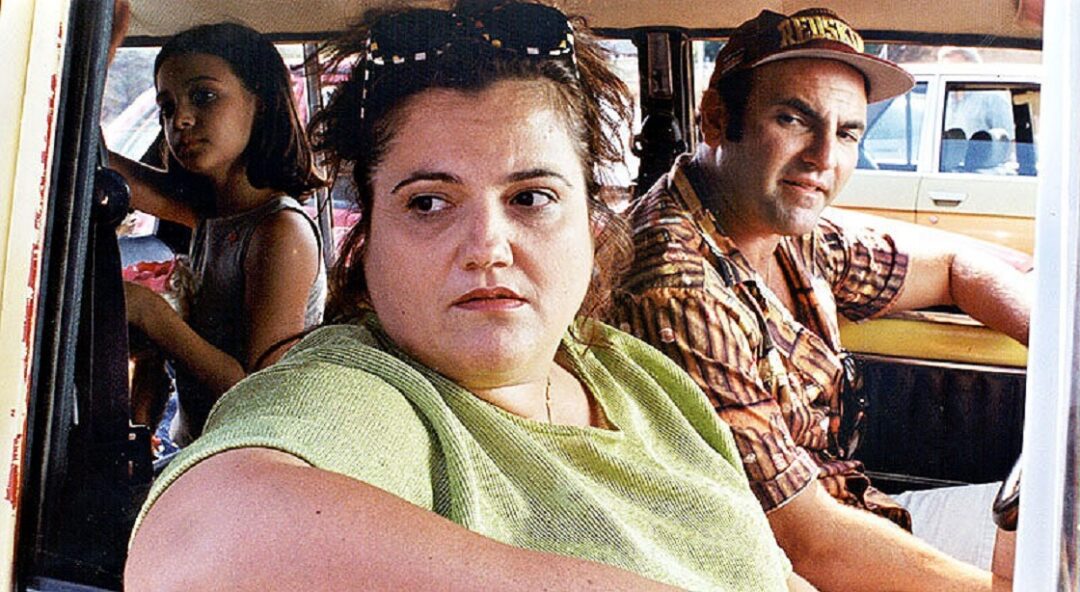
Konstantinos Giannaris crafts a multi-dimensional cinema of characters and intense emotions in this film, featuring reversals and transgressions. It delves into human relationships, social inequalities, and the alienation of urban life, portraying the trap of routine and the search for escape. The story centers on three couples/families who abandon Athens for their traditional summer holidays, leaving behind an empty apartment building. A 17-year-old burglar discovers an opportunity in the vacant premises, leading to three parallel stories of daily life and prayers for miracles. The film captures an untamed, anarchic, and quintessentially Greek summer, offering a metaphysical, post-Christian interpretation of human contradictions.
Τσίου (Tsiou, 2005) — Athens
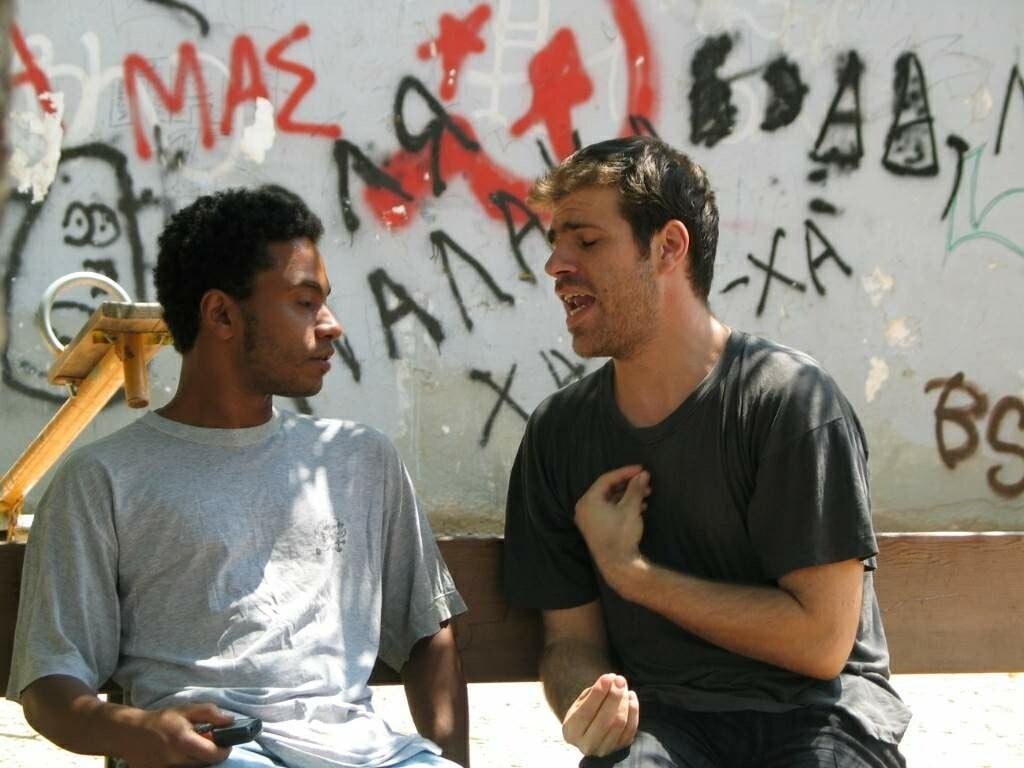
Set in an empty Athens on August 15th, this film follows a young drug user, Tsiou, as he desperately tries to secure his next dose. The narrative explores themes of hope, addiction, need, fear, and frustration, portraying Tsiou as walking a tightrope with the constant threat of falling. Makis Papadimitratos, as the director, approaches this issue with depth and a human perspective that avoids condemning the protagonist. By blending sensitivity with cynicism, the film achieves a powerful portrayal, making it one of the most significant Greek films of the 2000s, Tsiou a black comedy that has been widely loved and is rewatched every summer.
Νήσος (The Island, 2009) — Sifnos
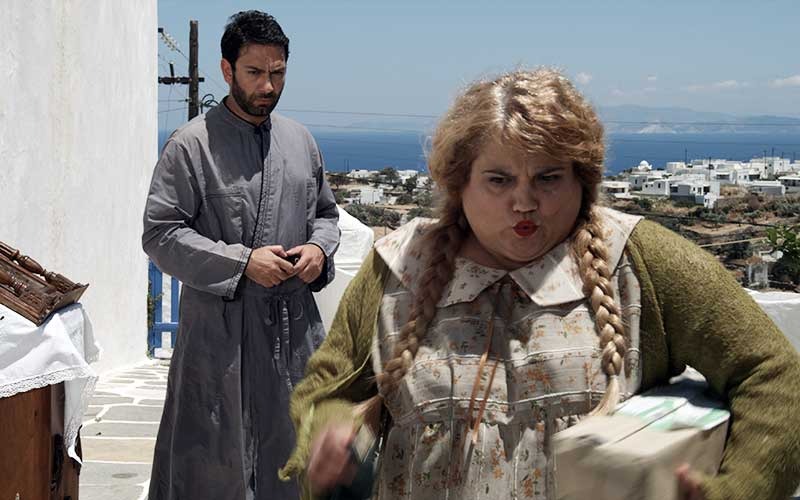
Taking viewers to Sifnos, this film by Christos Dimas begins with a wealthy notable whose death throws the island into turmoil. He leaves his fortune to the island’s four leaders—the mayor, policeman, priest, and teacher—on the condition that all their well-kept secrets are brought to light. The characters, repressed by the rules of their closed society, find themselves on the brink of nervous breakdowns, clashing over desires and interests. The film uses ethnographic elements rooted in memories of a past era, underscored by the hypocrisy prevalent in modern Greece. It was one of the most successful Greek comedies of recent years, even inspiring a sequel.
Suntan (2016) — Antiparos
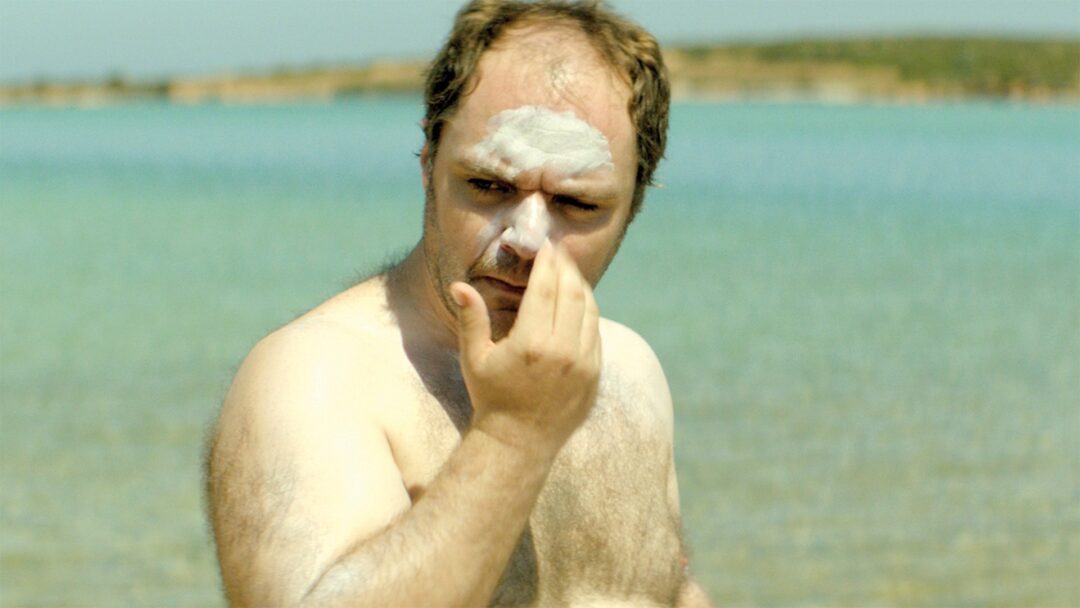
Suntan (2016), directed by Argyris Papadimitropoulos, is a compelling character study that uses the sun-drenched Greek island of Antiparos as both paradise and trap. The film follows Kostis (Makis Papadimitriou), a lonely, middle-aged doctor whose life unravels when he becomes infatuated with Anna, a hedonistic young tourist. What initially feels like a liberating summer fling gradually exposes his desperation, delusion, and inability to connect with the youthful vitality he envies. Papadimitropoulos contrasts the seductive beauty of the island with the grotesque unraveling of its protagonist, turning a coming-of-age premise on its head to create a captivating psychological thriller. Makis Papadimitriou delivers a deeply unsettling performance, embodying Kostis with a mix of vulnerability, awkwardness, and creeping menace that makes his descent into obsession both believable and disturbing.
Winona (2019) — Andros
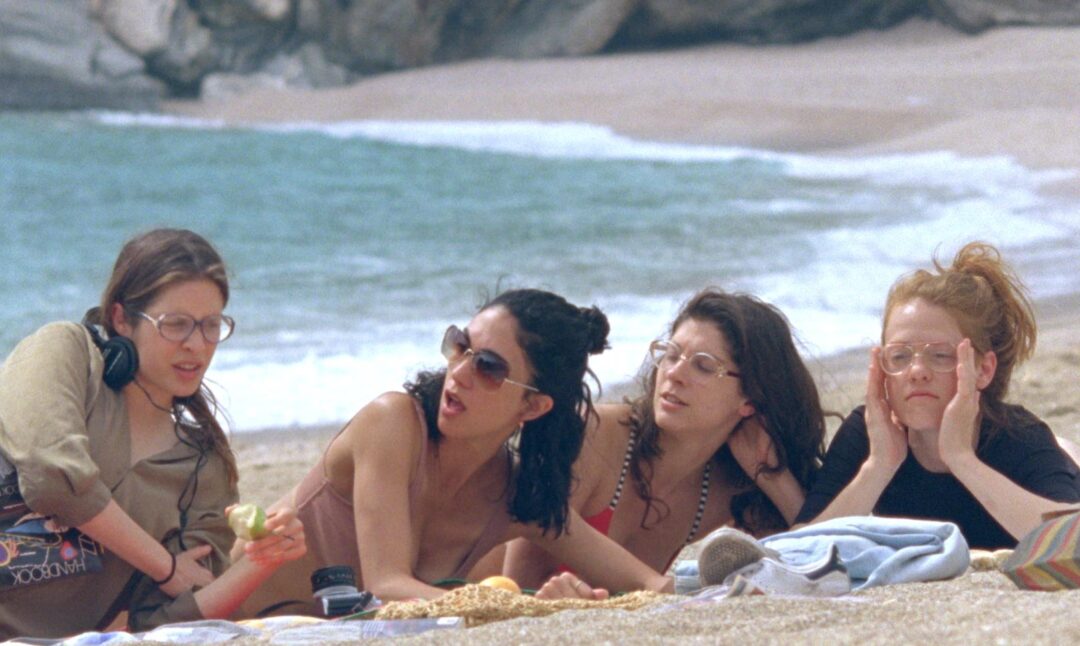
This film presents a distinctive aesthetic and a vivid portrait of the Greek summer, rich in colors. On a secluded beach in Andros, four young women spend a day together, engaging in dialogues that invite reflection through unanswered rhetorical and existential questions. The film delves into themes of memory, loss, and the management of trauma, imbued with melancholy and nostalgia. Shot on 16mm film by Alexandros Voulgaris, Winona captures the sensuality emanating from light, water, and young flesh, inviting viewers to uncover the secrets hidden beneath seemingly carefree games. Sofia Kokkali delivers a notable performance, embodying her role with theatrical depth.
Κιούκα (Kyuka: Before Summer’s End, 2024) — Poros
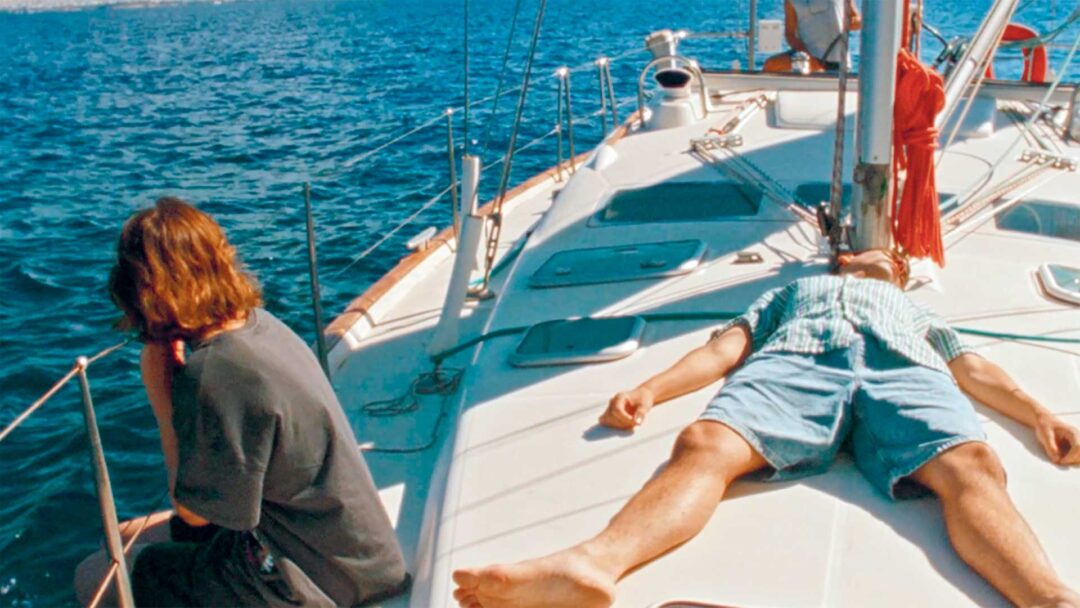
For our last entry we have a movie that was released just last year: In his assured feature debut, director Kostis Charamountanis crafts an evocative, sun-drenched fable of family, memory, and the ache of becoming who we were always meant to be. Against the idyllic backdrop of Poros, a single father and his adult twin children set sail for summer holidays—only to unintentionally confront their absent mother, now reappearing after decades. What begins as a tender, nostalgia-laced journey blooms into a bittersweet odyssey of identity, sibling bonds, and hesitant forgiveness. The result is a film both grounded and surreal—an emotionally resonant collage that lingers like the afterglow of a summer sunset.
*Featured image: from the film Κιούκα
I.L.
TAGS: GREEK FILM INDUSTRY | GREEK FILMS | LISTS

